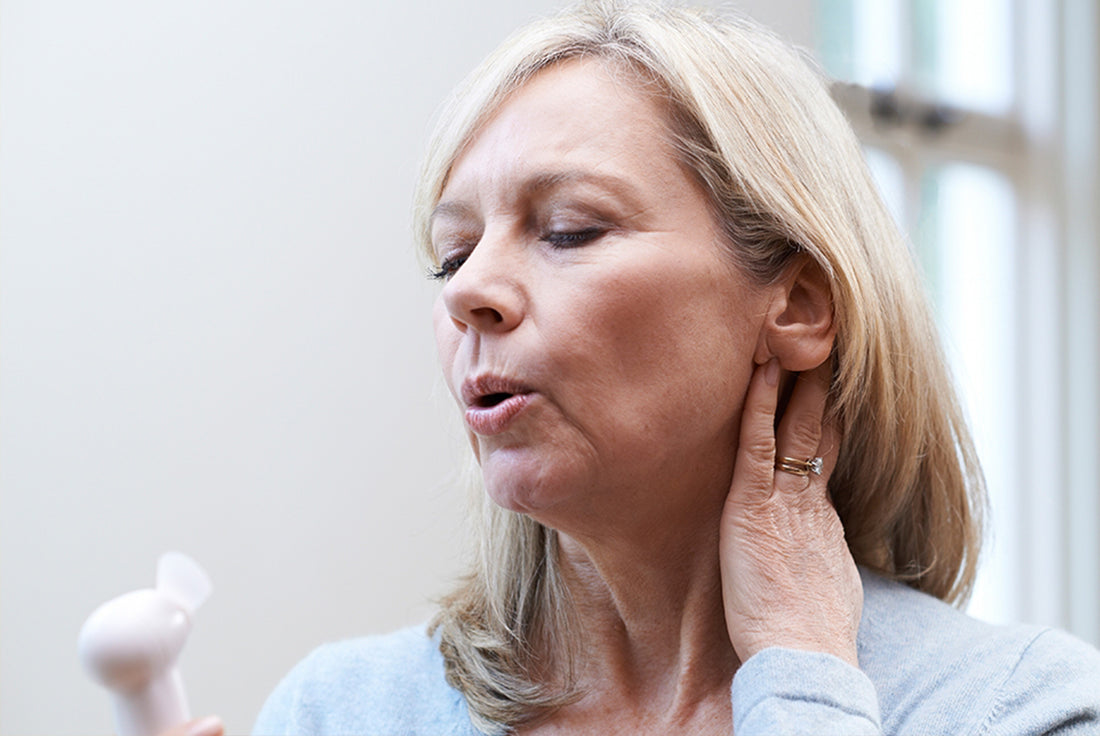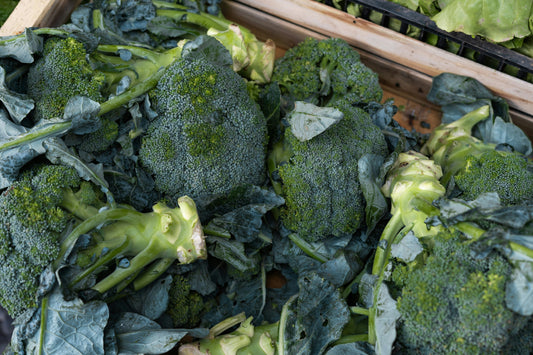We’re all taught about the awkward and irritating changes of puberty but no one warns women about the combination of grey hairs, wild mood changes, weight gain and acne that begins again in your 40’s.
Welcome to peri-menopause.
What is peri-menopause?
Some women describe peri-menopause as round two of puberty that no one warned them about, but technically it is the years of transition between having a regular period and menopause (the absence of a period for at least 12 months).
Peri-menopause normally begins in your 40’s and can last anywhere between 2 and 8 years. During this time your ovarian function starts to diminish due to miscommunication between the brain and ovaries, there will be some months that you ovulate and some you won’t (so, yes you can still fall pregnant at this stage!). This means that the amount of oestrogen and progesterone you make will greatly differ month to month, and even day to day. Before peri-menopause, your hormones will fluctuate in a pretty cyclic pattern, but in peri-menopause, this is no pattern, and hormones can fluctuate wildly, resulting in unpleasant symptoms.
Symptoms:
- Sleep disturbances
- Hot flushes and night sweats
- Mood changes (often very intense and fast changing)
- Anxiety and depression – women will often feel very teary for no apparent reason
- Weight gain
- Hair loss
- Brittle nails
- Acne
- Low libido
- Fatigue
- Changes in digestion
- Heavy periods
What can you do?
Get a clear picture
Find out exactly what is happening with your hormones. While your symptoms and health history tell you a lot about what is going on; blood, saliva and urine testing will give you the full picture. Comprehensive blood testing of your thyroid, nutrient levels, blood lipids, blood sugar, fasting insulin, and liver enzymes combined with a urine hormone test (like the DUTCH test) will show you exactly where the problems are so that the right nutrients can be used, and the right chemical pathways in your body can be supported.
Increase your protein and fat intake
By increasing your protein and fat in your diet you are providing your body with the building blocks it needs to make hormones, and to stabilise your mood. Animal proteins are a good source of B6 and taurine, two nutrients which are superstars at helping balance the mood changes associated with peri-menopause.
Grass fed, free range animal meat and eggs, fish, seafood, and plant-based proteins like hemp, beans and legumes are my go-to for protein.
Magnesium
If you don’t already take an extra magnesium supplement then please start now! Magnesium is essential for the production of GABA – a chemical which promotes the feeling of calm in the brain.
300mg of magnesium before can take the edge off sleepless nights and night sweats.
Keep your diet varied
Aim for as many different coloured fruits and vegetables as possible, combined with some animal protein, plant protein, nuts, seeds, and sea vegetables to give you the best chance of supporting each of your body systems. At this stage of your life, you want your body to have access to as many nutrients as it needs to make sure you can make hormones like progesterone and oestrogen for as long as possible.
Relax!
Women often don’t take my recommendation to relax very seriously, but you really need to. As oestrogen starts to decline your cortisol (a stress hormone) production naturally increases to tries and compensate for the lack of oestrogen. Cortisol is one of your fat storage hormones, and it is especially good at helping women lay fat around their midsection. When you are stressed out and not taking time to relax you are increasing this production of cortisol – which leads to even more fat storage.
Sometimes you need a little more support
If the above basic steps are not quiet hitting the spot then you might like to look into extra nutrients to support your health and wellbeing. I use a variety of treatments depending on which symptom is causing the biggest issues and more importantly look at treating the underlying cause – which will differ between women. I will use extra nutrients and herbs like; B6, magnesium, taurine and withania to support sleep or stress, or bitter herbs and B vitamins for liver support and energy, or maybe some anti-inflammatory herbs and lots of omega 3 fats to reduce inflammation. If you find yourself not coping with the transition then reach out to someone who is qualified to discuss these options.
Many women feel they should just deal with menopause, as it is a part of life – but remember you are exposing your body to far more stressors (a career, family to take care of, alcohol, pollution, food additives, processed foods) than it was designed for. It’s ok for your body to need a little extra support to help you through this stage of life. Find out more about working with me here.
What about hormone therapy?
Hormonal therapy is often offered as an option in order to manage the symptoms of peri-menopause, however, in my opinion, these medications are often used unnecessarily when basic nutrition or herbal support would have sufficed – and doesn’t come with any of the risks or side effects of hormone replacement therapy.
If you are already in the throes of peri-menopause then you may need a little extra support to help you feel human again. Good diet and the temporary use of nutritional and herbal medicine can help you out of your funk and get you back to feeling like yourself. Make an appointment with me here, and let’s get you back to feeling great again.




